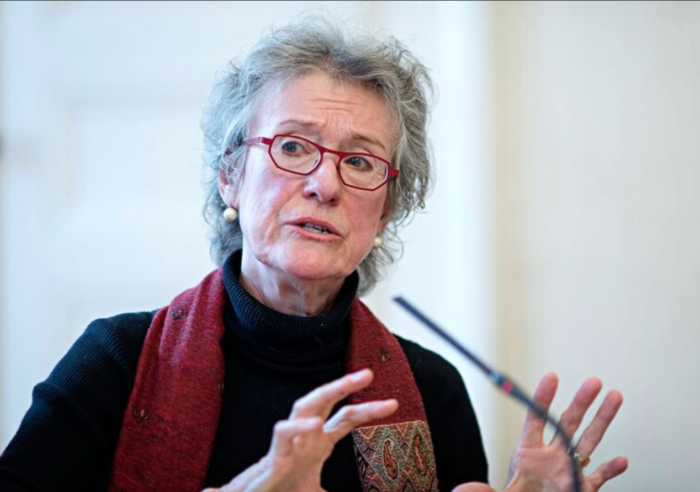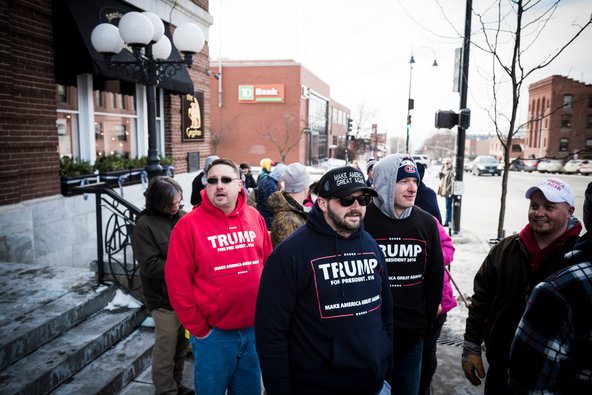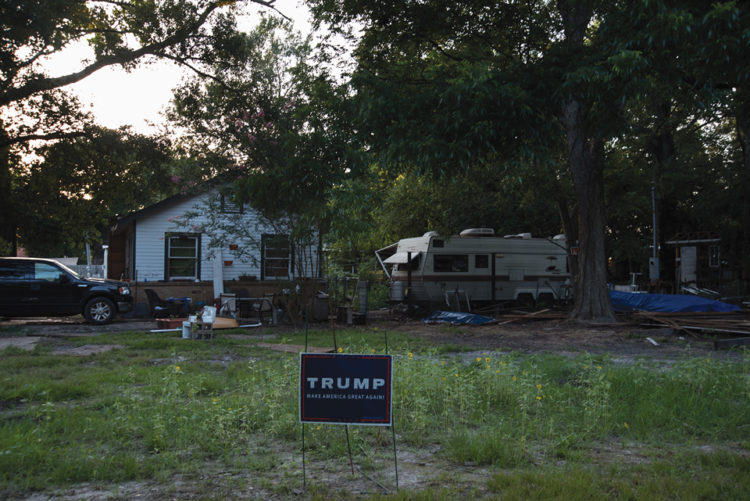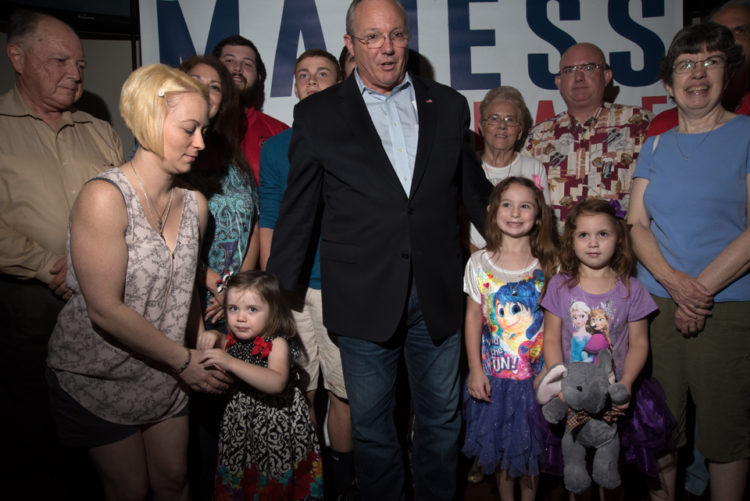Most Liberals I know scratch their heads in disbelief over Donald Trump’s candidacy. Even though he’s now imploding, what he represents won’t necessarily go away if he loses the Presidency. Chris Hedges in a recent Truthdig column, warns us that if we don’t address the concerns of Trump’s constituency, another right-wing demagogue will follow in his footsteps.
Liberals can be smug and condescending towards Trump followers, dismissing them as racist, backwards, Southern hicks, Christian fundamentals, etc. without trying to understand why they think the way they do.

Hochschild explaining how emotions shape political beliefs: a key concept in her new book
Arlie Hochschild, the Berkeley sociologist and author of The Second Shift, has risen to this challenge. Wanting to understand the sentiments of Tea Party disciples, she embedded herself in Lake Charles, Louisiana, where she made extended visits from 2000 to 2015. The result is a groundbreaking book, Strangers in Their Own Land: Anger and Mourning on the American Right.
Hochschild choose Lake Charles, Louisiana for its Tea Party fit: a white majority dominated by blue collar males who vote overwhelmingly Republican while living in communities with high levels of poverty and a high number of school school dropouts.
Lake Charles is home to “Cancer Alley,” the 85-mile strip along the lower Mississippi between Baton Rogue and New Orleans, which has the nation’s second-highest incidence of cancer for men and the fifth highest rate of male deaths from cancer. These cancers are linked to the heavy pollution from unregulated oil and chemical companies that have blanketed Southern Louisiana in the past few decades.

White blue collar males: the backbone of Trump supporters, whom Hochschild describes as feeling ignored by their government.
Hochschild was confounded by her subjects’ staunch anti-government positions, since she believed government regulation could rein in the abuses of major industries, like Citgo and Sasol, which have poisoned the local environment.
She calls this phenomenon, “The Great Paradox” where residents appear to vote against their interests. Over and over Hochschild’s subjects stated that oil brought money and jobs, making it worth the inconveniences: unsafe drinking water and heavily polluted air; pervasive ghost neighborhoods in areas no longer habitable; and premature cancer deaths (!).
Hochschild is a natural empathetic observer. It didn’t take long for her to gain the trust of her subjects. She was invited into their homes, attended church suppers and social functions along with political rallies. She patiently sat and listened, rarely challenging her new friends. They told her they weren’t anti-Black or anti-feminist, just against minorities getting preference over them when it came to jobs and government benefits. They believed in the free market and “the American dream,” still hoping, against all odds, to achieve a better lifestyle for themselves and their families.

The yard of a Trump supporter (Mother Jones)
Hochschild settled on the following analogy to explain her “Great Paradox:”
You are standing in the middle of a long line stretching towards the horizon where the American Dream awaits. As you wait, people are cutting in line ahead of you. Many of the line-cutters are black—beneficiaries of affirmative action or welfare. There are career-driven women and immigrants. You are asked by President Obama to feel sorry for them. . . . He is using the money in your pocket to help the line-cutters. . . . It’s not your government anymore; it’s theirs.
This imagery describes what Hochschild terms her subjects’ “deep story.” It reflects their pain: the feeling that they’ve done everything right but are still falling behind. They are angry and in a state of mourning for the better lifestyle that has slipped through their fingers. They feel like strangers in their own country. Their government has betrayed them. They don’t trust it.
Donald Trump speaks to them when he talks about making “American Great Again.” When Hillary insists, “It’s already great,” they know she’s not talking to them.

A Tea Party Meet-and-Greet in Southern Louisiana (Mother Jones)
The cautionary note in Hochschild’s study is one we all should take to heart: endeavor to understand the views of those with politically different stances to work for a system that responds to all the disenfranchised, not just Tea Party members, but, to name a few: young people with crippling student loans, the permanently unemployed, Blacks, Muslims, and Native Americans.
Many pundits insist that we no longer have a functioning democracy. It’s up to us to band together to save our country. We need one another. We can’t afford divisions. Time is running out.
